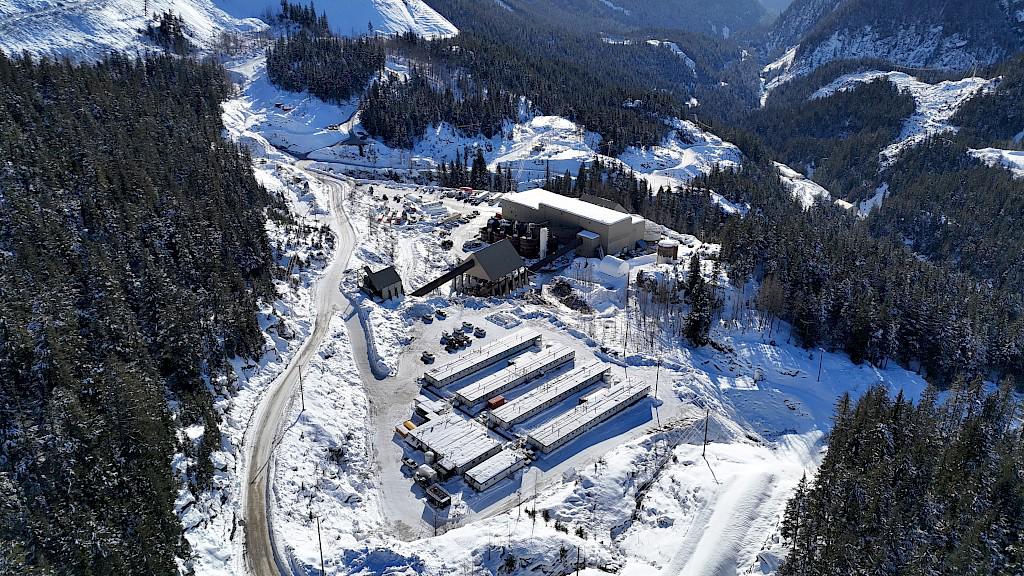The recent copper surge has industry professionals concerned over an enduring shortage, especially with copper being a key metal needed for electrification. Courtesy of Ra Dragon via Unsplash.
Welcome back to your weekly mining news recap, where we catch you up on some of the news you may have missed. This week’s headlines include faltering industry confidence in achieving 2050 net-zero goals, B.C.’s latest cleantech investment and the B.C. Supreme Court rejecting an appeal from the former Banks Island Gold CEO.
This week, the Pathways Alliance, a group of six oil sands producers, submitted applications to Canada’s energy regulator for a $16.5 billion carbon capture project with the hope that a final investment decision will be made next year, as reported by Bloomberg. If approved, the first phase of this project would commence in 2030 and could slash carbon emissions from Canada’s oil sands by roughly 15 per cent by capturing 12 million tonnes of carbon dioxide annually.
According to the London Metal Exchange, copper prices have surged to as high US$9,164.50 a tonne—the highest level since April 2023. While there are several factors that are responsible for this copper surge, one key factor involves Chinese copper smelters and the possibility that they could cut production. Another key factor impacting this surge includes a tightening supply of materials across the globe following several copper mine closures.
After the Canadian government announced it would be tightening restrictions on foreign investments from state-owned enterprises, Cong Peiwu, China’s ambassador to Canada, said that the country will continue to engage in business in Canada’s critical minerals industry, as reported by Bloomberg. Peiwu expressed his discontent with these tighter restrictions, saying that the Canadian government is wrong to prevent Chinese investors from purchasing majority stakes in domestic mining companies. China has been turning its attention to the country’s junior miners, offering investments to firms who are struggling to make capital.
Never miss another recap
Sign up for the latest news from CIM Magazine and the Canadian Institute of Mining, Metallurgy and Petroleum.
Skepticism is growing in the business community about the possibility of achieving net-zero emissions by 2050, as reported by Mining.com. A recent Natural Resource Executive Survey conducted by Bain & Company found that 62 per cent of executives working in the resources sectors, including mining, expect global net zero goals to be reached by 2060 or later, as compared to 54 per cent in the same survey last year.
B.C.’s Supreme Court has a decided a new trial is required for Benjamin Mossman, the former CEO and president of the now defunct Banks Island Gold, as reported by CBC News. Mossman had already been convicted and fined $30,000 by the B.C. Provincial Court in 2023 for some of the environmental violations he was charged with in connection to the Banks Island Gold mine, which briefly operated commercially in 2015. Upon reviewing the appeal, the Supreme Court ruled errors were made in the initial trial, and that Mossman should be retried on the charges, including the ones he had already been acquitted of.
B.C. is investing $850,000 from its Innovative Clean Energy Fund in pH7 Technologies, a cleantech startup company founded in 2020, as reported by Mining.com. The investment will go towards supporting a pilot project that will process 5,000 kilograms of raw materials daily to extract roughly 2,500 kilograms of platinum group metals each year. According to the startup, this novel extraction process will allow metal from low-grade resources or difficult substrates to be extracted in a cost-effective way.
Digital Transformation in Potash Mining (DTiPM) is a program recently developed by Morris Interactive that helps Indigenous students in Saskatchewan hone their skills, better preparing them for a career in the potash mining industry, as reported by Sarah St-Pierre in the February issue of CIM Magazine. Out of the program’s current 35 graduates, 29 participants have already found a job or sought further education following completion of the course.
A key part of preparing for a cyberattack is understanding how to limit its impact on operations, explained Rob Labbé, CEO and chief information security officer-in-residence at MM-ISAC, in the February issue of CIM Magazine. He detailed how through careful planning and a focus on operational resilience can mitigate the disruption to operations a cyberattack can cause.
Vancouver-headquartered Orla Mining reported that it produced 121,877 ounces of gold in 2023, a new high for the gold miner, from its Camino Rojo mine in Mexico. The company reported an all-in sustaining cost of US$736 per ounce of gold sold.
That’s all for this week. If you’ve got feedback, you can always reach us at editor@cim.org. If you’ve got something to add, why not join the conversation on our Facebook, Twitter, LinkedIn or Instagram pages?




